#disability representation
Text
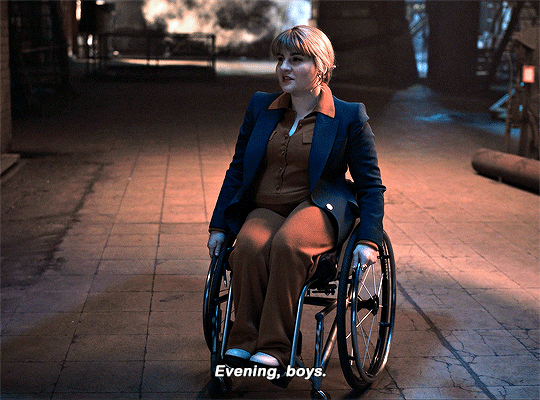
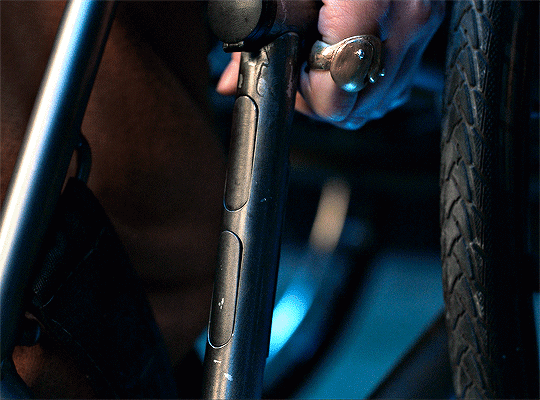

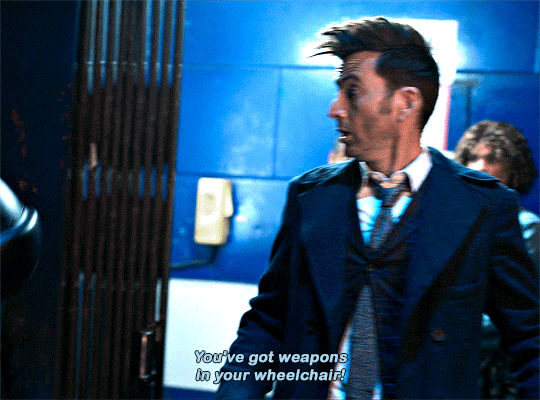
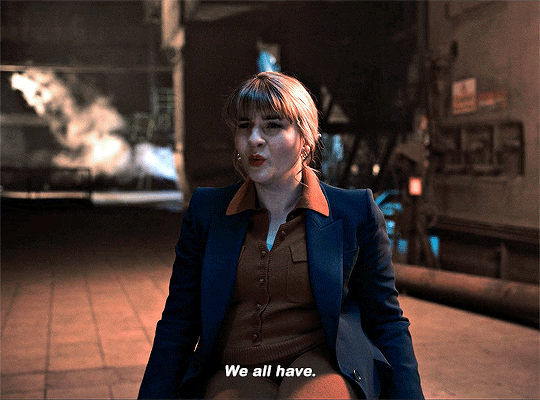
# so here for badass disabled character representation
#*mine#dwedit#timelordgifs#dw#doctor who#dw spoilers#shirley anne bingham#fourteenth doctor#userbbelcher#userstream#useroptional#david tennant#ruth madeley#disability#disability representation#she already means everything to me
13K notes
·
View notes
Text
“alt text for more info” “turn on cations for more info” no actually this is not where more info goes. These have a very distinct purpose. There are plenty of other places for more info. If you’re going to make your post inaccessible, the least you could do is not use accessibility tools at your own leisure for whatever purpose you see fit.
#disability accessibility#accessibility#vision impaired#hearing impaired#hard of hearing#physical disability#sensory disability#disability accommodations#disability representation#disability advocacy#equitability#neurodiversity#adhd autistic#disabled things#alt text#captioning#subtitles#disability resources#accessibility tools
4K notes
·
View notes
Text
Petition to add more disabled magical creatures in fantasy
Like picture a mermaid. When they have to be on land their tail turns to legs, but because their body is used to lower gravity their joints tire easily and are chronically in pain.
Also depending on how deep in the ocean they live, it’s likely they have circulation problems because their body is used to the water pressure holding everything where it needs to be and now their blood is always fucking pooling in their legs and they have to wear compression socks everywhere.
Wheelchair user mermaids. Partially/fully blind mermaids because who needs to see when there’s no light at the bottom of the ocean?
Mermaids with sensory issues who have to wear headphones all the time because sound is so much louder up here on land and they are constantly overstimulated. And also the sun is simply Too Bright™.
Mermaids who have POTS because in the water postural changes make no difference and their bodies don’t know how to stabilize with so much gravity.
I’m really fixated on the mermaids rn but PLEASE feel more than welcome to add more!!!! I wanna hear about disabled dragons
#fantasy#high fantasy#disability#mermaids#disability representation#books and reading#fantasy books#dragons#potsie#chronic pain#chronic fatigue#wheelchair users
2K notes
·
View notes
Text
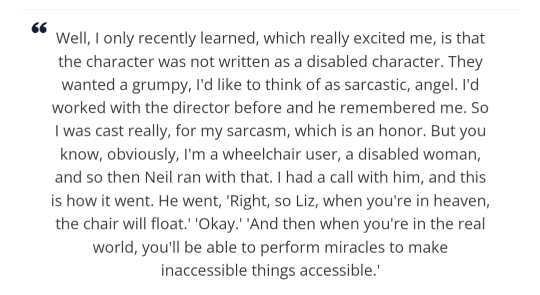
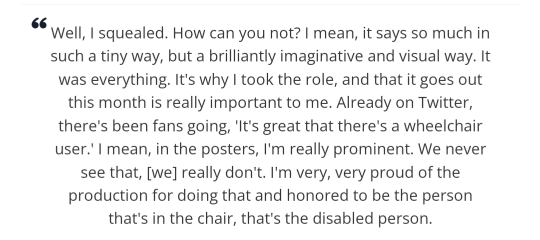
I know we all love to talk about the amazing queer representation in Good Omens, but can we also talk about that DISABILITY REP?
From this interview with Liz Carr who plays Saraquel.
#good omens#good omens season 2#liz carr#disability#disability rights#disability representation#accessibility#neil gaiman
5K notes
·
View notes
Text
We need better queer representation in shows movies and books
We need queer POC
We need people who don't want to label their gender or sexuality
We need trans people who's transition goals aren't to look cis
We need queer people with diverse religions
We need queer people who use pronouns that don't "match" their gender
We need aromantic and asexual characters
We need disabled queer people
We need queer people who use multiple labels for themselves
We need queer people who's entire personality isn't being queer
We need queer people who aren't just there because of romance
We need real and diverse queer people in the media
#lgbtq#lgbt#pride#queer#lgbt pride#bisexuality#lesbian#gay#gay pride#pansexual#omnisexual#trans#transgender#nonbinary#genderfluid#aromantic#asexual#aroace#agender#bigender#genderqueer#gender nonconforming#xenogender#queer poc#enby#representation matters#queer representation#disability representation#disabled queer
1K notes
·
View notes
Text
I wish there was more representation of disabilities and chronic illness in fantasy, science fiction and action genres.
Not just a side character with 30 seconds of screentime. An important character that doesn't just exist to further the storylines of other characters. I want a character that doesn't get "cured" or healed. A character that stays disabled and/or chronically ill. A character that isn't afraid to ask for help. One that doesn't think they're a burden and doesn't try to hide their disability/ chronic illness.
I want to see how it affects them, not just know they're disabled/chronically ill and it jist never gets mentioned again. I don't mean it should be their entire personality but being disabled and or chronically ill can affect many parts of life.
I just wish there was more representation of disabilities and chronic illness that shows every part of it. Especially in fantasy and science fiction it's lacking.
#disabled#disability#chronic illness#chronically ill#tumblr#cripple punk#fantasy#science fiction#action#representation#disability representation#chronic illness representation
3K notes
·
View notes
Text
im kinda tired of the assumption that physical disability = visible, and non-physical disability = invisible. it is not that simple and it certainly aint the case for me.
#disability#disabled#actually disabled#disabilties#autism#physical disability#actually autistic#physically disabled#invisible disability#visible disability#disability representation#disabilities
1K notes
·
View notes
Text
Writing and drawing amputee characters: Not every amputee wears prosthetics (and that's ok)
Not every amputee wears prosthetics, and not doing so is not a sign that they've "given up".
It's a bit of a trope that I've noticed that when an amputee, leg amputees in particular, don't wear prosthetics in media its often used as a sign that they've given up hope/stopped trying/ are depressed etc. If/when they start feeling better, they'll start wearing their prosthetics again, usually accompanied by triumphant or inspiring music (if it's a movie). The most famous example of this is in Forest Gump, Where Dan spends most of the movie after loosing his legs wishing he'd died instead. He does eventually come around, and him finally moving from his wheelchair to prosthetics is meant to highlight this.
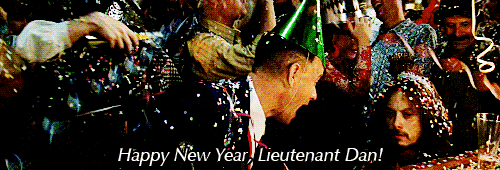
The thing is, it's not that it's unrealistic - in fact my last major mental health spiral was started because one of my prosthetics was being a shit and wouldn't go on properly, despite fitting perfectly at the prosthetist's the day before. I'm not going to use my legs when I'm not in a good headspace, but the problem is, this is the only time non-prosthetic using amputees ever get representation: to show how sad they are. Even if that's not what the creator/writer necessarily intended, audiences will often make that assumption on their own unless you're very careful and intentional about how you frame it, because it's what existing media has taught them to expect.
But there are lots of reasons why someone might not use prosthetics:
they might not need them: this is more common in arm amputees because of how difficult it can be to use arm prosthetic, especially above-elbow prosthetics. Most folks learn how to get on without them pretty well. In fact, most of the arm amputees I know don't have prosthetics, or only have them for specific tasks (e.g. I knew a girl who had a prosthetic hand made specifically for rowing, but that's all she used it for).
Other mobility aids just work better for them: for me, I'm faster, more manoeuvrable and can be out for longer when I'm in my wheelchair than I ever could on my prosthetics. Youtube/tik tok creator Josh Sundquist has said the same thing about his crutches, he just feels better using them than his prosthetic. This isn't the case for everyone of course, but it is for some of us. Especially people with above-knee prosthetics, in my experience.
Other disabilities make them harder to use: Some people are unable to use prosthetics due to other disabilities, or even other amputations. Yeah, as it turns out, a lot of prosthetics are only really designed for single-limb amputees. While they're usable for multi-limb amps, they're much harder to use or they might not be able to access every feature. For example, the prosthetic knee I have has the ability to monitor the walk cycle of the other leg and match it as close as possible - but that only works if you have a full leg on the other side. Likewise, my nan didn't like using her prosthetic, as she had limited movement in her shoulders that meant she physically couldn't move her arms in the right way to get her leg on without help.
Prosthetics are expensive in some parts of the world: not everyone can afford a prosthetic. My left prosthetic costs around $5,000 Australian dollars, but my right one (the above knee) cost $125,000AUD. It's the most expensive thing I own that I only got because my country pays for medical equipment for disabled folks. Some places subsidise the cost, but paying 10% of $125,000 is still $12,500. Then in some places, if you don't have insurance, you have to pay for that all by yourself. Even with insurance you still have to pay some of it depending on your cover. Arm prosthetics are even more expensive. Sure, both arms and legs do have cheaper options available, but they're often extremely difficult to use. You get what you pay for.
they aren't suitable for every type of environment: Prosthetics can be finicky and modern ones can be kind of sensitive to the elements. My home town was in a coastal lowland - this means lots of beaches and lots of swamp filled with salty/brackish water. The metals used in prosthetics don't hold up well in those conditions, and so they would rust quicker, I needed to clean them more, I needed to empty sand out of my foot ALL THE TIME (there always seemed to be more. It was like a bag of holding but it was just sand). Some prosthetics can't get wet at all. There were a few amputees who moved to the area when I was older who just didn't bother lol. It wasn't worth the extra effort needed for the maintenance.
People have allergies to the prosthetic material: This is less of a problem in the modern day, but some people are allergic to the materials their prosthetics are made from. You can usually find an alternative but depending on the type of allergy, some people are allergic to the replacements too.
Some people just don't like them.
There's nothing wrong with choosing to go without a prosthetic. There's nothing wrong with deciding they aren't for you. It doesn't make you a failure or sad or anything else. Using or not using prosthetics is a completely morally neutral thing.
Please, if you're writing amputees, consider if a prosthetic really is the best mobility aid for your character and consider having your characters go without, or at least mix it up a bit.
For example, Xari, one of the main characters in my comic, uses prosthetics unsupported and with crutches, and uses a wheelchair. They alternate between them throughout the story.
#disability#disabled#id in alt text#writing#writing disability#disability representation#authors of tumblr#write#writeblr#writers on tumblr#writerscommunity#writer#creative writing#writing tips#writing resources#writing help#writing advice#writing disability with cy cyborg
2K notes
·
View notes
Text
Actually, this deserves its own post because the way Abbott Elementary handled Melissa's character in this episode is genuinely some of the best dyslexia representation I have ever seen on TV.
She's not a little kid who overcomes her disability as an adult. Her dyslexia doesn't give her superpowers (weirdly common trope). She isn't portrayed as stupid by the show or the other characters because of it. She's a competent adult who has developed coping mechanisms to deal with her disability and is still shown to struggle sometimes despite that! Oh my god is that refreshing!
Also, Melissa being competitive about the reading challenge and Barbra's comment about how good she is at engaging kids in reading is totally recontextualized by the reveal that she has a learning disability and especially the reveal that she was probably teased for her LD as a kid (which I'm also so happy that they brought up - I don't think most people realize how competitive elementary schools tend to make reading, and how shitty and ostracizing that can be for kids who struggle with it). Winning the book challenge is important to her because it's something she used to really struggle with. She's good at getting kids to read because she can relate to their challenges in a personal way. They directly tie her LD to her strengths as a teacher without it being fantastical or over-emphasized and I can't even begin to tell you how much I love it!
The bit at the end where she says "you know how sometimes I have to read things a few times" to Janine, in the break room with no students present is also a great scene because it shows her LD in an adult, professional context. It's a conversation that I, and every dyslexic person I know, has had with their co-workers at some point. I just love that they make a point of normalizing her LD in an adult workplace setting that's separate from the classroom and away from the kids.
This season has done an awesome job talking about disability generally but the choice to give not just a student, but one of the teachers an LD was an absolutely perfect move. I really hope this gets brought up in later episodes and isn't just a one-off.
#abbott elementary#melissa schemmenti#dyslexia#disability representation#Quinta must have taken the time to higher and work with a sensitivity reader for this episode and bless her for it#I truly expect so little from dyslexia rep at this point#it was amazing to see it handled so well here
5K notes
·
View notes
Text
Write more characters with physical disabilities. Write more characters with mental disabilities. Write characters with neurodivergence (more than one specific type too). Write characters with mobility aids. Write characters who have good and bad health days. Write characters who are chronically in pain, but don't express it every second. Write characters who were born with a disability. Write characters who developed one. Write characters who have adapted to the world around them because the world won't adapt for them. Write about their strengths and weaknesses due to their disability. Write about accessibility. Write about inaccessibility. Make it realistic.
Don't make the disability magically disappear or be cured (or at least be mindful of how you write that). Don't make it their entire personality but also don't skip over it. Don't use stereotypes (and that's not just with disabilities). Don't make the character actively hate their disability; they're allowed to be upset but most people with disabilities have learned to accept it as part of their life and accept it as part of their identity.
#writeblr#writers on tumblr#writing advice#writing community#creative writing#if you don't know how research it#that's a huge part of writing#media representation#accessibility#disability representation#neurodiversity#disabled characters#writing disabilities#writing disabled characters
1K notes
·
View notes
Text
Can I just take a moment to give a big shoutout to Neil, Pterry and the team for REPRESENTATION!
It’s so natural in the show that we almost take it for granted. But in this world, we see characters of every race, every gender, every sex, every sexuality, every ability as if it’s the most normal thing in the world. Women have agency. Sex workers are treated with respect. Hooligans use Grindr. Middle-aged+ people are sexy. No-one ever jeers or laughs or demeans someone for what they ARE, just how they’re behaving.
And with a couple of exceptions, these characters aren’t the Hollywood ideal of beauty, but they ARE all beautiful in their own unique ways. Even demons and zombies with rotting faces and mouths full of flies. Everyone just shines from inside out.
#good omens#go2#neil gaiman#terry pratchett#lgbt representation#queer representation#black representation#disability representation#feminist#trans representation#representation matters
1K notes
·
View notes
Text
Gentle reminder that your disability and/or chronic illness struggles are valid, even if others have it worse. It’s not like there’s one definitive Most Disabled Person In The World and they’re the only one entitled to accommodations or reactive emotions. That’s not how it works <3
#physical disability#chronic illness#neurological disability#adhd autistic#audhd#neurodiversity#did osdd#late diagnosed autistic#complex trauma#invisible disability#invisible illness#intersectionality#comorbidities#comorbid conditions#disability representation#disability accommodations#disability advocacy#chronic pain#chronic fatigue#chronically ill#disabled representation#disabled rant#disability things#chronic illness things
2K notes
·
View notes
Text
The Disability Library
I love books, I love literature, and I love this blog, but it's only been recently that I've really been given the option to explore disabled literature, and I hate that. When I was a kid, all I wanted was to be able to read about characters like me, and now as an adult, all I want is to be able to read a book that takes us seriously.
And so, friends, Romans, countrymen, I present, a special disability and chronic illness booklist, compiled by myself and through the contributions of wonderful members from this site!
As always, if there are any at all that you want me to add, please just say. I'm always looking for more!
Edit 20/10/2023: You can now suggest books using the google form at the bottom!
Updated: 31/08/2023
Articles and Chapters
The Drifting Language of Architectural Accessibility in Victor Hugo's Notre-Dame de Paris, Essaka Joshua, 2012
Early Modern Literature and Disability Studies, Allison P. Hobgood, David Houston Wood, 2017
How Do You Develop Whole Object Relations as an Adult?, Elinor Greenburg, 2019
Making Do with What You Don't Have: Disabled Black Motherhood in Octavia E. Butler's Parable of the Sower and Parable of the Talents, Anna Hinton, 2018
Necropolitics, Achille Mbeme, 2003 OR Necropolitics, Achille Mbeme, 2019
Wasted Lives: Modernity and Its Outcasts, Zygmunt Bauman, 2004
Witchcraft and deformity in early modern English Literature, Scott Eaton, 2020
Books
Fiction:
Misc:
10 Things I Can See From Here, Carrie Mac
A-F:
A Curse So Dark and Lonely, (Series), Brigid Kemmerer
Akata Witch, (Series), Nnedi Okorafor
A Mango-Shaped Space, Wendy Mass
Ancillary Justice, (Series), Ann Leckie
An Unkindness of Ghosts, Rivers Solomon
An Unseen Attraction, (Series), K. J. Charles
A Shot in the Dark, Victoria Lee
A Snicker of Magic, Natalie Lloyd
A Song of Ice and Fire, (series), George R. R. Martin
A Spindle Splintered, (Series), Alix E. Harrow
A Time to Dance, Padma Venkatraman
Bath Haus, P. J. Vernon
Beasts of Prey, (Series), Ayana Gray
The Bedlam Stacks, (Series), Natasha Pulley
Black Bird, Blue Road, Sofiya Pasternack
Black Sun, (Series), Rebecca Roanhorse
Blood Price, (Series), Tanya Huff
Borderline, (Series), Mishell Baker
Breath, Donna Jo Napoli
The Broken Kingdoms, (Series), N.K. Jemisin
Brute, Kim Fielding
Cafe con Lychee, Emery Lee
Carry the Ocean, (Series), Heidi Cullinan
Challenger Deep, Neal Shusterman
Cinder, (Series), Marissa Meyer
Clean, Amy Reed
Connection Error, (Series), Annabeth Albert
Cosima Unfortunate Steals A Star, Laura Noakes
Crazy, Benjamin Lebert
Crooked Kingdom, (Series), Leigh Bardugo
Daniel Cabot Puts Down Roots, (Series), Cat Sebastian
Daniel, Deconstructed, James Ramos
Dead in the Garden, (Series), Dahlia Donovan
Dear Fang, With Love, Rufi Thorpe
Deathless Divide, (Series), Justina Ireland
The Degenerates, J. Albert Mann
The Doctor's Discretion, E.E. Ottoman
Earth Girl, (Series), Janet Edwards
Everyone in This Room Will Someday Be Dead, Emily R. Austin
The Extraordinaries, (Series), T. J. Klune
The Extraordinary Education of Nicholas Benedict, (Series), Trenton Lee Stewart
Fight + Flight, Jules Machias
The Final Girl Support Group, Grady Hendrix
Finding My Voice, (Series), Aoife Dooley
The First Thing About You, Chaz Hayden
Follow My Leader, James B. Garfield
Forever Is Now, Mariama J. Lockington
Fortune Favours the Dead, (Series), Stephen Spotswood
Fresh, Margot Wood
H-0:
Harmony, London Price
Harrow the Ninth, (series), Tamsyn Muir
Hench, (Series), Natalia Zina Walschots
Highly Illogical Behaviour, John Corey Whaley
Honey Girl, Morgan Rogers
How to Become a Planet, Nicole Melleby
How to Bite Your Neighbor and Win a Wager, (Series), D. N. Bryn
How to Sell Your Blood & Fall in Love, (Series), D. N. Bryn
Hunger Pangs: True Love Bites, Joy Demorra
I Am Not Alone, Francisco X. Stork
The Immeasurable Depth of You, Maria Ingrande Mora
In the Ring, Sierra Isley
Into The Drowning Deep, (Series), Mira Grant
Iron Widow, (Series), Xiran Jay Zhao
Izzy at the End of the World, K. A. Reynolds
Jodie's Journey, Colin Thiele
Just by Looking at Him, Ryan O'Connell
Kissing Doorknobs, Terry Spencer Hesser
Lakelore, Anna-Marie McLemore
Learning Curves, (Series), Ceillie Simkiss
Let's Call It a Doomsday, Katie Henry
The Library of the Dead, (Series), TL Huchu
The Lion Hunter, (Series), Elizabeth Wein
Lirael, (Series), Garth Nix
Long Macchiatos and Monsters, Alison Evans
Love from A to Z, (Series), S.K. Ali
Lycanthropy and Other Chronic Illnesses, Kristen O'Neal
Never Let Me Go, Kazuo Ishiguro
The Never Tilting World, (Series), Rin Chupeco
The No-Girlfriend Rule, Christen Randall
Nona the Ninth, (series), Tamsyn Muir
Noor, Nnedi Okorafor
Odder Still, (Series), D. N. Bryn
Once Stolen, (Series), D. N. Bryn
One For All, Lillie Lainoff
On the Edge of Gone, Corinne Duyvis
Origami Striptease, Peggy Munson
Our Bloody Pearl, (Series), D. N. Bryn
Out of My Mind, Sharon M. Draper
P-T:
Parable of the Sower, (Series), Octavia E. Butler
Parable of the Talents, (Series), Octavia E. Butler
Percy Jackson & the Olympians, (series), Rick Riordan
Pomegranate, Helen Elaine Lee
The Prey of Gods, Nicky Drayden
The Pursuit Of..., (Series), Courtney Milan
The Queen's Thief, (Series), Megan Whalen Turner
The Quiet and the Loud, Helena Fox
The Raging Quiet, Sheryl Jordan
The Reanimator's Heart, (Series), Kara Jorgensen
The Remaking of Corbin Wale, Joan Parrish
Roll with It, (Series), Jamie Sumner
Russian Doll, (Series), Cristelle Comby
The Second Mango, (Series), Shira Glassman
Scar of the Bamboo Leaf, Sieni A.M
Shaman, (Series), Noah Gordon
Sick Kids in Love, Hannah Moskowitz
The Silent Boy, Lois Lowry
Six of Crows, (Series) Leigh Bardugo
Sizzle Reel, Carlyn Greenwald
The Spare Man, Mary Robinette Kowal
The Stagsblood Prince, (Series), Gideon E. Wood
Stake Sauce, Arc 1: The Secret Ingredient is Love. No, Really, (Series), RoAnna Sylver
Stars in Your Eyes, Kacen Callender [Expected release: Oct 2023]
The Storm Runner, (Series), J. C. Cervantes
Stronger Still, (Series), D. N. Bryn
Sweetblood, Pete Hautman
Tarnished Are the Stars, Rosiee Thor
The Theft of Sunlight, (Series), Intisar Khanani
Throwaway Girls, Andrea Contos
Top Ten, Katie Cotugno
Torch, Lyn Miller-Lachmann
Treasure, Rebekah Weatherspoon
Turtles All the Way Down, John Green
U-Z:
Unlicensed Delivery, Will Soulsby-McCreath
Expected release October 2023
Verona Comics, Jennifer Dugan
Vorkosigan Saga, (Series), Lois McMaster Bujold
We Are the Ants, (Series), Shaun David Hutchinson
The Weight of Our Sky, Hanna Alkaf
Whip, Stir and Serve, Caitlyn Frost and Henry Drake
The Whispering Dark, Kelly Andrew
Wicked Sweet, Chelsea M. Cameron
Wonder, (Series), R. J. Palacio
Wrong to Need You, (Series), Alisha Rai
Ziggy, Stardust and Me, James Brandon
Graphic Novels:
A Quick & Easy Guide to Sex & Disability, (Non-Fiction), A. Andrews
Constellations, Kate Glasheen
Dancing After TEN: a graphic memoir, (memoir) (Non-Fiction), Vivian Chong, Georgia Webber
Everything Is an Emergency: An OCD Story in Words Pictures, (memoir) (Non-Fiction), Jason Adam Katzenstein
Frankie's World: A Graphic Novel, (Series), Aoife Dooley
The Golden Hour, Niki Smith
Nimona, N. D. Stevenson
The Third Person, (memoir) (Non-Fiction), Emma Grove
Magazines and Anthologies:
Artificial Divide, (Anthology), Robert Kingett, Randy Lacey
Beneath Ceaseless Skies #175: Grandmother-nai-Leylit's Cloth of Winds, (Article), R. B. Lemburg
Defying Doomsday, (Anthology), edited by Tsana Dolichva and Holly Kench
Josee, the Tiger and the Fish, (short story) (anthology), Seiko Tanabe
Nothing Without Us, edited by Cait Gordon and Talia C. Johnson
Nothing Without Us Too, edited by Cait Gordon and Talia C. Johnson
Unbroken: 13 Stories Starring Disabled Teens, (Anthology), edited by Marieke Nijkamp
Uncanny #24: Disabled People Destroy Science Fiction, (Anthology), edited by: Elsa Sjunneson-Henry, Dominik Parisien et al.
Uncanny #30: Disabled People Destroy Fantasy, (Anthology), edited by: Nicolette Barischoff, Lisa M. Bradley, Katharine Duckett
We Shall Be Monsters, edited by Derek Newman-Stille
Manga:
Perfect World, (Series), Rie Aruga
The Sky is Blue with a Single Cloud, (Short Stories), Kuniko Tsurita
Non-Fiction:
Academic Ableism: Disability and Higher Education, Jay Timothy Dolmage
A Disability History of the United States, Kim E, Nielsen
The Architecture of Disability: Buildings, Cities, and Landscapes beyond Access, David Gissen
Being Seen: One Deafblind Woman's Fight to End Ableism, Elsa Sjunneson
Black Disability Politics, Sami Schalk
Borderline, Narcissistic, and Schizoid Adaptations: The Pursuit of Love, Admiration, and Safety, Dr. Elinor Greenburg
Brilliant Imperfection: Grappling with Cure, Eli Clare
The Cambridge Companion to Literature and Disability, Barker, Clare and Stuart Murray, editors.
The Capacity Contract: Intellectual Disability and the Question of Citizenship, Stacy Clifford Simplican
Capitalism and Disability, Martha Russel
Care work: Dreaming Disability Justice, Leah Lakshmi Piepzna-Samarasinha
Catatonia, Shutdown and Breakdown in Autism: A Psycho-Ecological Approach, Dr Amitta Shah
The Collected Schizophrenias: Essays, Esme Weijun Wang
Crip Kinship, Shayda Kafai
Crip Up the Kitchen: Tools, Tips and Recipes for the Disabled Cook, Jules Sherred
Culture – Theory – Disability: Encounters between Disability Studies and Cultural Studies, Anne Waldschmidt, Hanjo Berressem, Moritz Ingwersen
Decarcerating Disability: Deinstitutionalization and Prison Abolition, Liat Ben-Moshe
Demystifying Disability: What to Know, What to Say, and How to Be an Ally, Emily Ladau
Dirty River: A Queer Femme of Color Dreaming Her Way Home, Leah Lakshmi Piepzna-Samarasinha
Disability Pride: Dispatches from a Post-ADA World, Ben Mattlin
Disability Visibility: First-Person Stories From the Twenty-First Century, Alice Wong
Disfigured: On Fairy Tales, Disability and Making Space, Amanda Leduc
Every Cripple a Superhero, Christoph Keller
Exile and Pride: Disability, Queerness and Liberation, Eli Clare
Feminist Queer Crip, Alison Kafer
The Future Is Disabled: Prophecies, Love Notes, and Mourning Songs, Leah Lakshmi Piepzna-Samarasinha
Growing Up Disabled in Australia, Carly Findlay
It's Just Nerves: Notes on a Disability, Kelly Davio
The Immortal Life of Henrietta Lacks, Rebecca Skloot
Language Deprivation & Deaf Mental Health, Neil S. Glickman, Wyatte C. Hall
The Minority Body: A Theory of Disability, Elizabeth Barnes
My Body and Other Crumbling Empires: Lessons for Healing in a World That Is Sick, Lyndsey Medford
No Right to Be Idle: The Invention of Disability, 1840s-1930s, Sarah F. Rose
Nothing About Us Without Us: Disability Oppression and Empowerment, James I. Charlton
The Pedagogy of Pathologization Dis/abled Girls of Color in the School-prison Nexus, Subini Ancy Annamma
Physical Disability in British Romantic Literature, Essaka Joshua
QDA: A Queer Disability Anthology, Raymond Luczak, Editor.
The Right to Maim: Debility, Capacity, Disability, Jasbir K. Puar
Sitting Pretty, (memoir), Rebecca Taussig
Sounds Like Home: Growing Up Black & Deaf in the South, Mary Herring Wright
Surviving and Thriving with an Invisible Chronic Illness: How to Stay Sane and Live One Step Ahead of Your Symptoms, Ilana Jacqueline
The Things We Don't Say: An Anthology of Chronic Illness Truths, Julie Morgenlender
Uncanny Bodies: Superhero Comics and Disability, Scott T. Smith, José Alaniz
Uncomfortable Labels: My Life as a Gay Autistic Trans Woman, (memoir), Laura Kate Dale
Unmasking Autism, Devon Price
The War on Disabled People: Capitalism, Welfare and the Making of a Human Catastrophe, Ellen Clifford
We've Got This: Essays by Disabled Parents, Eliza Hull
Year of the Tiger: An Activist's Life, (memoir) (essays) Alice Wong
Picture Books:
A Day With No Words, Tiffany Hammond, Kate Cosgrove-
A Friend for Henry, Jenn Bailey, Mika Song
Ali and the Sea Stars, Ali Stroker, Gillian Reid
All Are Welcome, Alexandra Penfold, Suzanne Kaufman
All the Way to the Top, Annette Bay Pimentel, Jennifer Keelan-Chaffins, Nabi Ali
Can Bears Ski?, Raymond Antrobus, Polly Dunbar
Different -- A Great Thing to Be!, Heather Alvis, Sarah Mensinga
Everyone Belongs, Heather Alvis, Sarah Mensinga
I Talk Like a River, Jordan Scott, Sydney Smith
Jubilee: The First Therapy Horse and an Olympic Dream, K. T. Johnson, Anabella Ortiz
Just Ask!, Sonia Sotomayor, Rafael López
Kami and the Yaks, Andrea Stenn Stryer, Bert Dodson
My Three Best Friends and Me, Zulay, Cari Best, Vanessa Brantley-Newton
Rescue & Jessica: A Life-Changing Friendship, Jessica Kensky, Patrick Downes, Scott Magoon
Sam's Super Seats, Keah Brown, Sharee Miller
Small Knight and the Anxiety Monster, Manka Kasha
We Move Together, Kelly Fritsch, Anne McGuire, Eduardo Trejos
We're Different, We're the Same, and We're All Wonderful!, Bobbi Jane Kates, Joe Mathieu
What Happened to You?, James Catchpole, Karen George
The World Needs More Purple People, Kristen Bell, Benjamin Hart, Daniel Wiseman
You Are Enough: A Book About Inclusion, Margaret O'Hair, Sofia Sanchez, Sofia Cardoso
You Are Loved: A Book About Families, Margaret O'Hair, Sofia Sanchez, Sofia Cardoso
The You Kind of Kind, Nina West, Hayden Evans
Zoom!, Robert Munsch, Michael Martchenko
Plays:
Peeling, Kate O'Reilly
---
With an extra special thank you to @parafoxicalk @craftybookworms @lunod @galaxyaroace @shub-s @trans-axolotl @suspicious-whumping-egg @ya-world-challenge @fictionalgirlsworld @rubyjewelqueen @some-weird-queer-writer @jacensolodjo @cherry-sys @dralthon @thebibliosphere @brynwrites @aj-grimoire @shade-and-sun @ceanothusspinosus @edhelwen1 @waltzofthewifi @spiderleggedhorse @sleepneverheardofher @highladyluck @oftheides @thecouragetobekind @nopoodles @lupadracolis @elusivemellifluence @creativiteaa @moonflowero1 @the-bi-library @chronically-chaotic-cryptid for your absolutely fantastic contributions!
---
Submit a Book:
#disability resources#disability#chronic illness#disability books#books#resources#book list#disability literature#literature#disability representation#disabled characters#information#informative#disability education#disability history#disability rights#please add to this#to be updated#long post
2K notes
·
View notes
Text
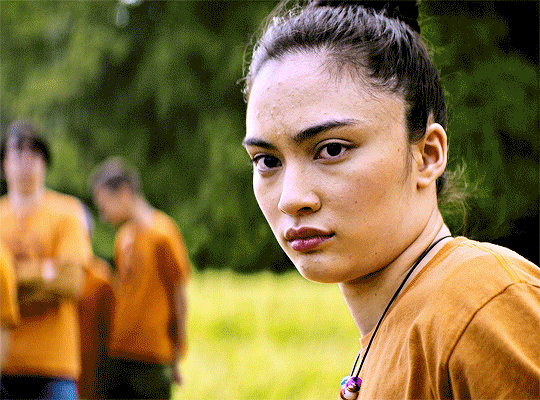
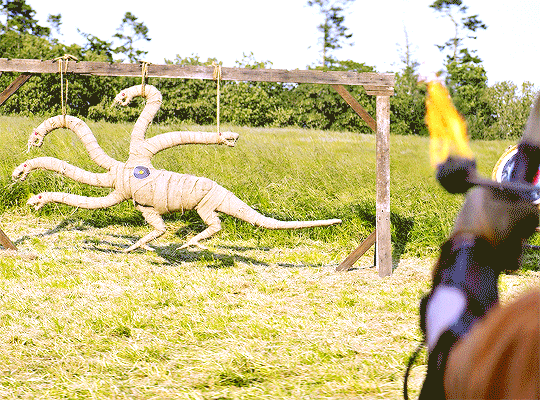
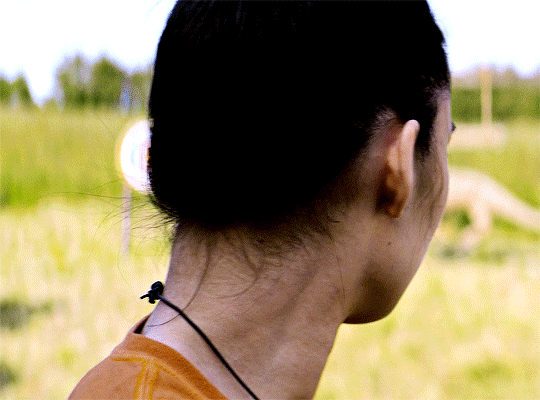
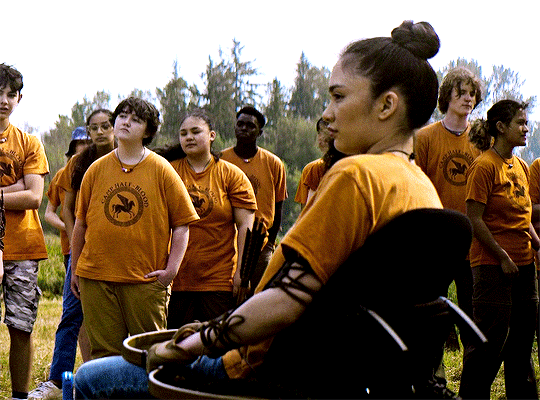

# a beautiful badass disabled demi-god in a wheelchair
#*mine#pjoedit#pjo#pjo spoilers#percy jackson and the olympians#riordanverse#useraurore#tvedit#cinematv#tvarchive#disability#disability representation#this means the world to me#wheelchair
522 notes
·
View notes
Text
They even got the fact that you have to have special wheels to have a chair on non paved ground. Because otherwise it completely messes with the chairs frame.😭
I know it’s one extra in one scene from what I can tell but you almost never get to see all terrain chairs in use. Mostly because people don’t know the difference, hell I didn’t know the difference when I first became a chair user.
447 notes
·
View notes
Text
There is one thing from Star Trek: Discovery that sticks with me. It's the one crewmember in a wheelchair.
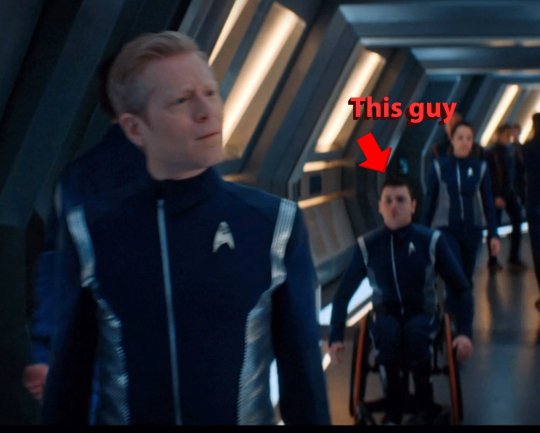
Why? Because in a future where almost any medical condition is curable, being disabled or using a wheelchair isn't seen as something that needs to be fixed.
Does he have a name or a backstory? No. But unlike Pike (ToS), Emory Erickson (Enterprise), or Admiral Jameson (Next Generation), he's not in the wheelchair because of some tragic accident or illness that left them scarred, paralysed, and/or disabled. He's not made the centre of a story of struggle and pity like Melora Pazlar (Deep Space 9).
There's no story of him trying or needing to be "fixed", "healed" or "cured", there's no story of him trying to adapt, there's no story of him getting in the way or being a burden. He's not seen as a tragic victim. He's not seen as unfit for duty or disabled.
He's just a guy in a wheelchair and a member of the crew.
#this is technically called incidental representation#which is representation of people going about their everyday lives#but this means everything to me#if only my thesis were on wheelchair users in literature and media#star trek#star trek discovery#discovery#star trek: discovery#disability#disability representation#wheelchair users#disabled representation#wheelchair
807 notes
·
View notes